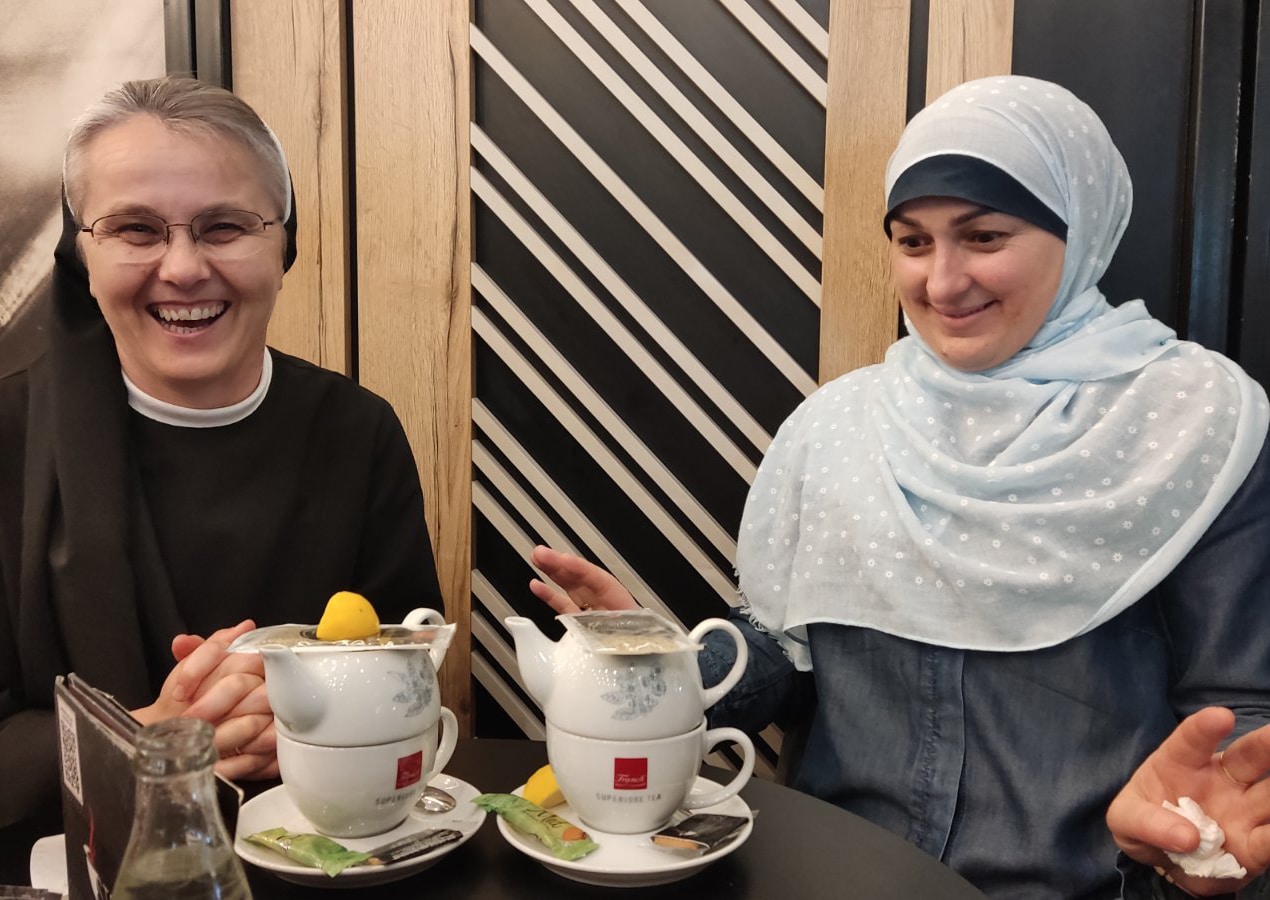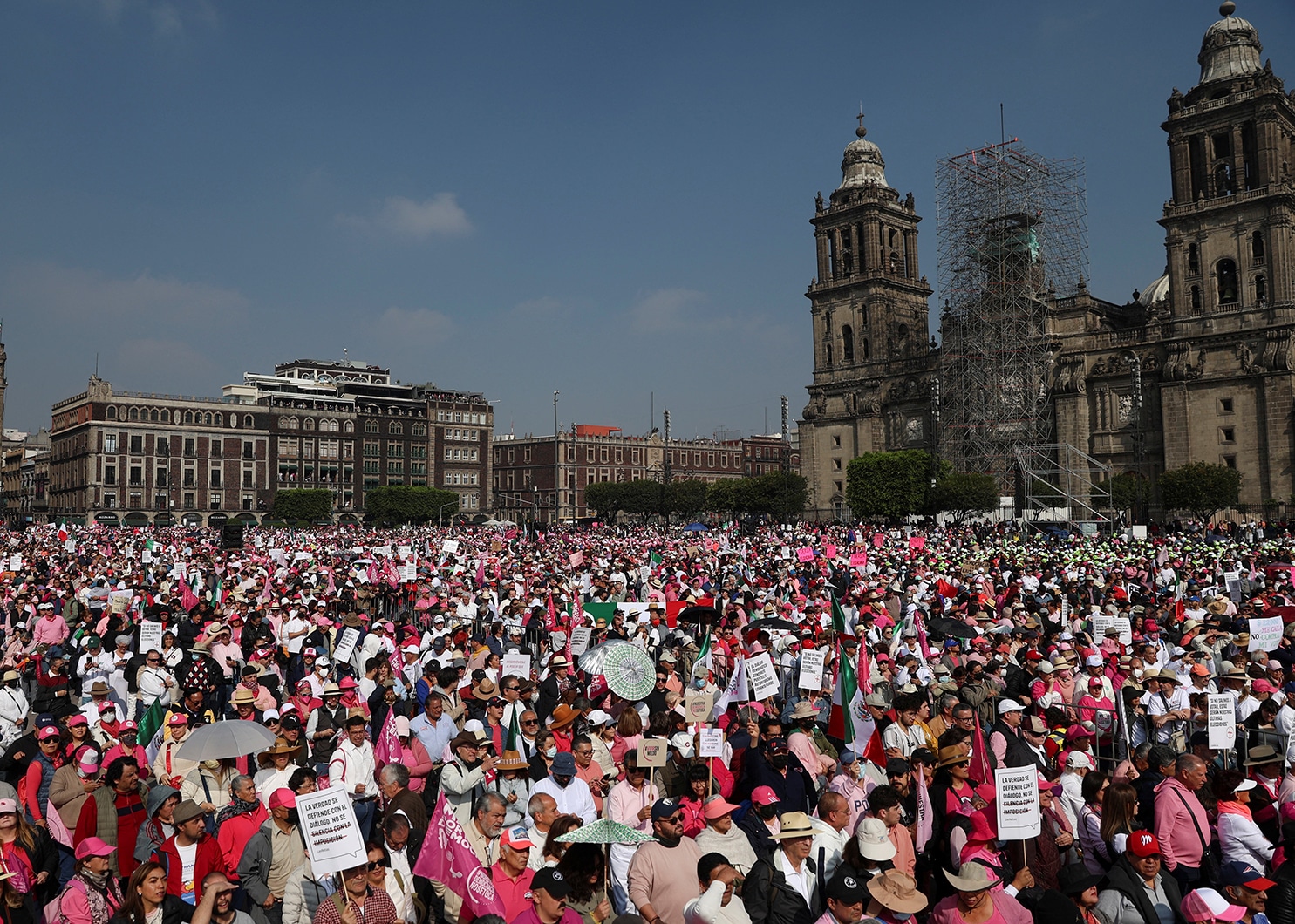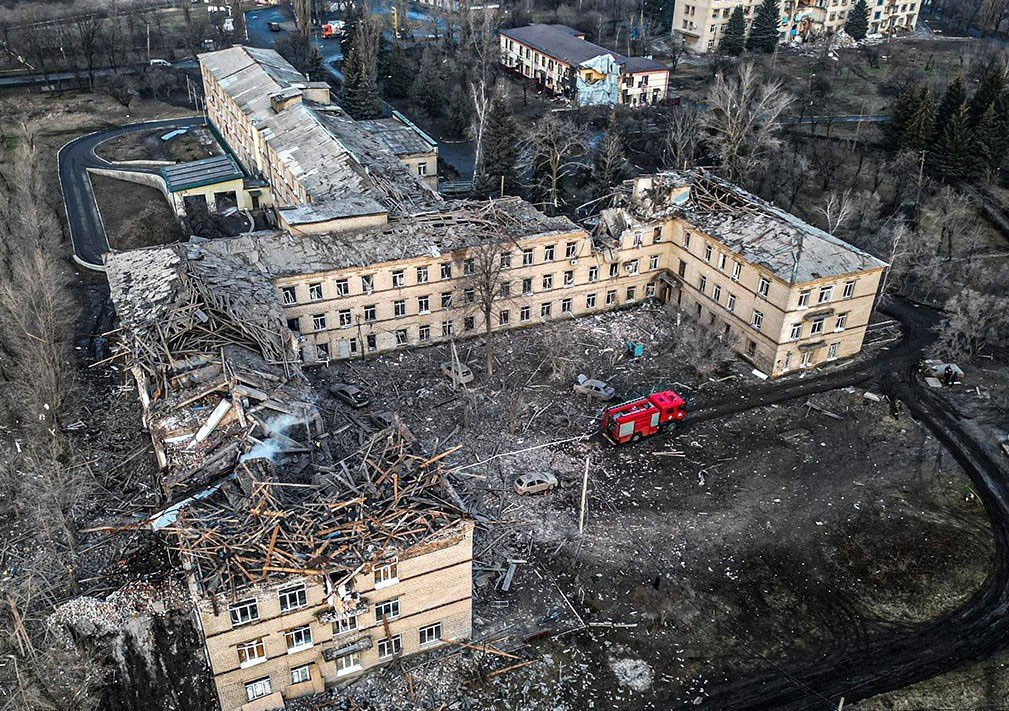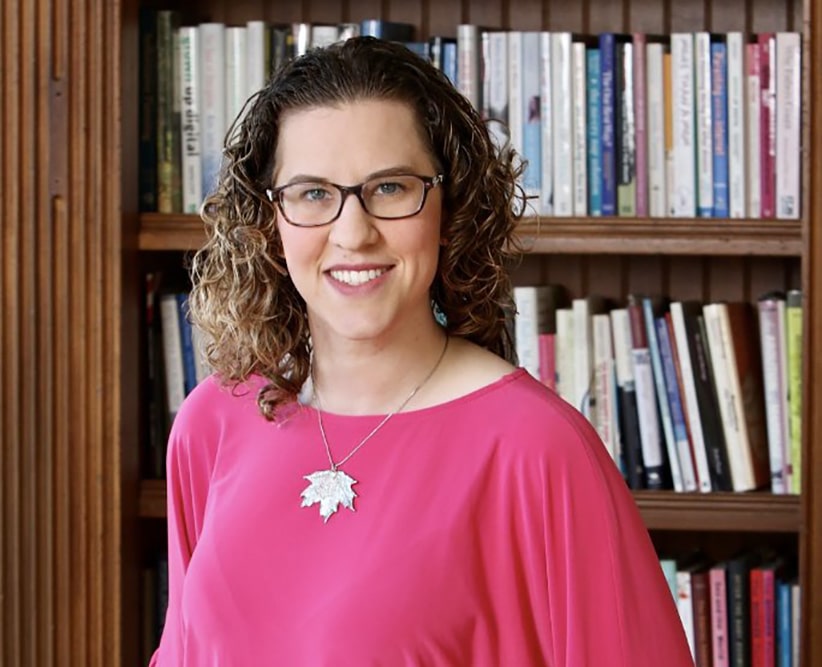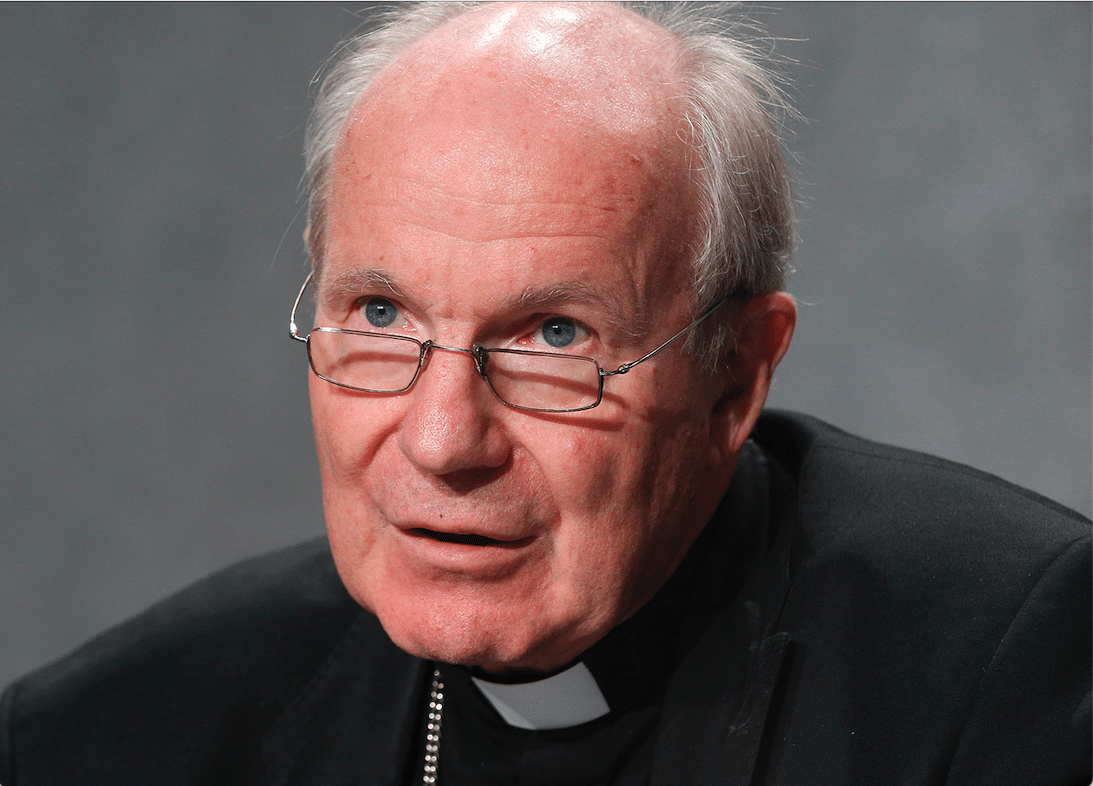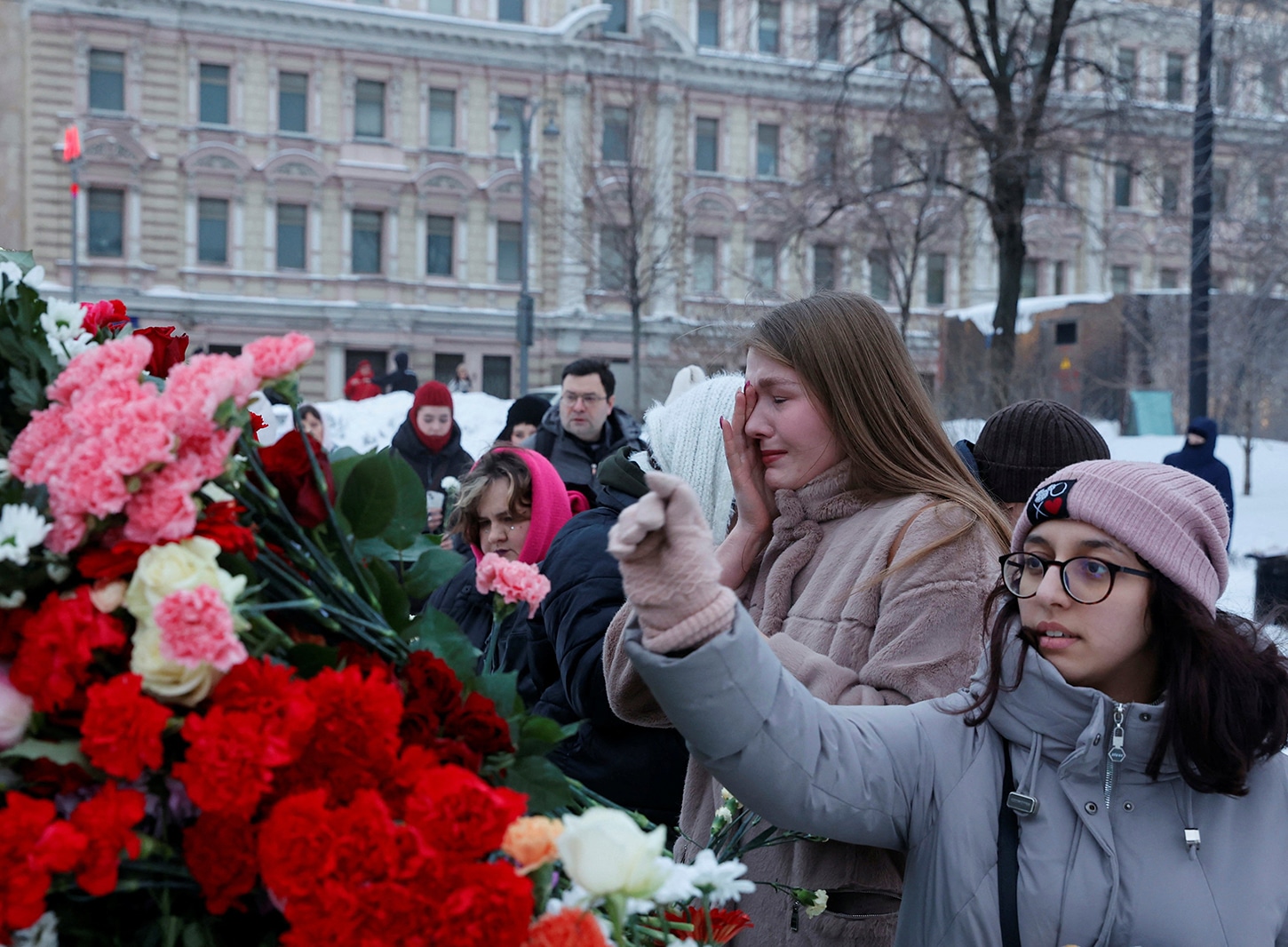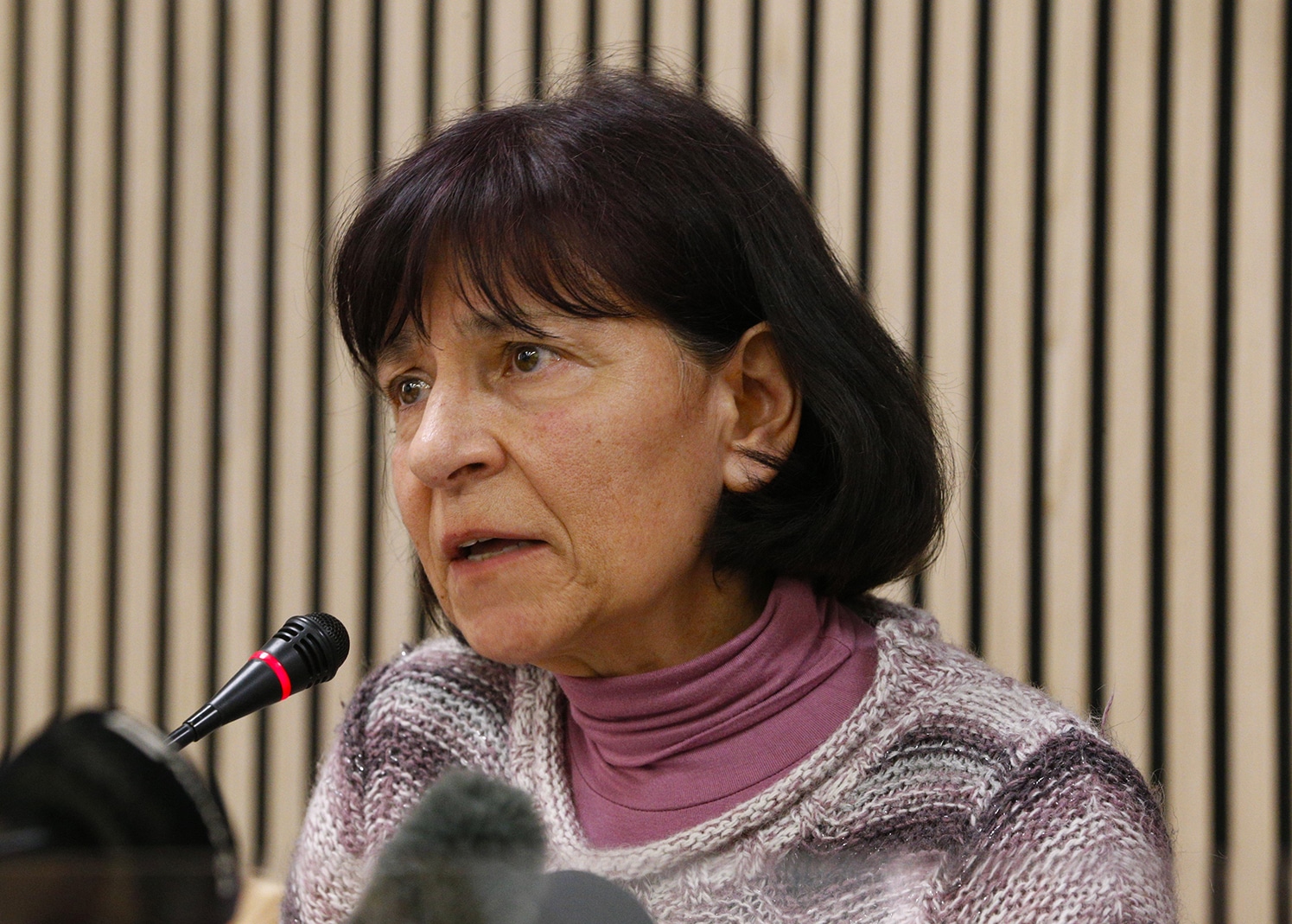JAJCE, Bosnia-Herzegovina (OSV News) — With its towering minaret and stately white exterior, the Esme Sultanija Mosque in the center of Jajce, Bosnia and Herzegovina, is a sacred edifice venerated by people of all faiths.
But the building’s significance also has to do with healing — not just beauty. The original structure was destroyed in 1992 during the Bosnian war and its painstaking reconstruction, though largely finished by 2010, was not fully completed until last year.
“Sadly, in war, sacred objects should be exempt from destruction,” Ramiz Kahric, the mosque’s imam said recently as he gave a tour to a group of Christian visitors. “But that’s not the case.”
The mosque is named after the wife of Bosnian Gov. Mehmed Pasha Muhsinovic, who ruled in the late 18th century, the time the original mosque was constructed. The structure is the only mosque in Bosnia and Herzegovina named after a woman.
The new structure is reason for rejoicing — a symbol that the war of three decades ago is largely, though perhaps not fully, behind Bosnia. “It’s become a source of joy for everyone,” he said.
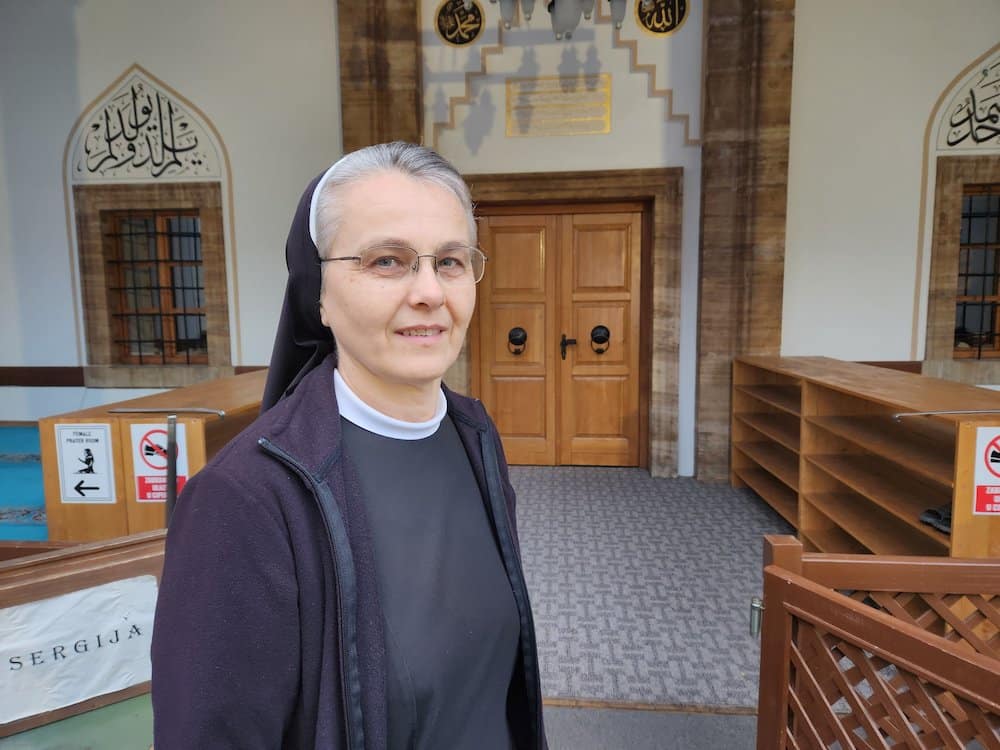
One of those rejoicing is Sister Iva Klaric, 51, a Croatian teacher of religion and a member of the Bosnian-Croatian province of the School Franciscan Sisters of Christ the King, who has resided in Jajce, located in central Bosnia and Herzegovina, for 15 years.
She has worked with the Muslim community to promote dialogue and cooperation between Christians and Muslims in the small, picturesque city of about 26,000 — about half Croat Catholic and half Muslim.
Though Sister Iva’s work and the efforts of other sisters in Bosnia are small in scale, and often involve those the sisters have befriended, they are helping mend wounds in a country where war fueled ethnic and religious animosity.
The ravages of war
The war of the 1990s altered demographics dramatically — before the war, the inner city was twice its current size and had a sizable Serb Orthodox community.
But the ravages of war changed that. Though alliances shifted, at the beginning of the war, Muslims and Croats were allied against forces of the Yugoslav army, which were predominantly Serb. Shelling from that army was responsible for the destruction of the mosque, as well as a neighboring Catholic church and much of the city center.
“The city changed, and the war was the cause of that change,” said Sister Iva, who studied theology in Sarajevo, the capital of Bosnia and Herzegovina, and taught for nearly 20 years in communities near Jajce.
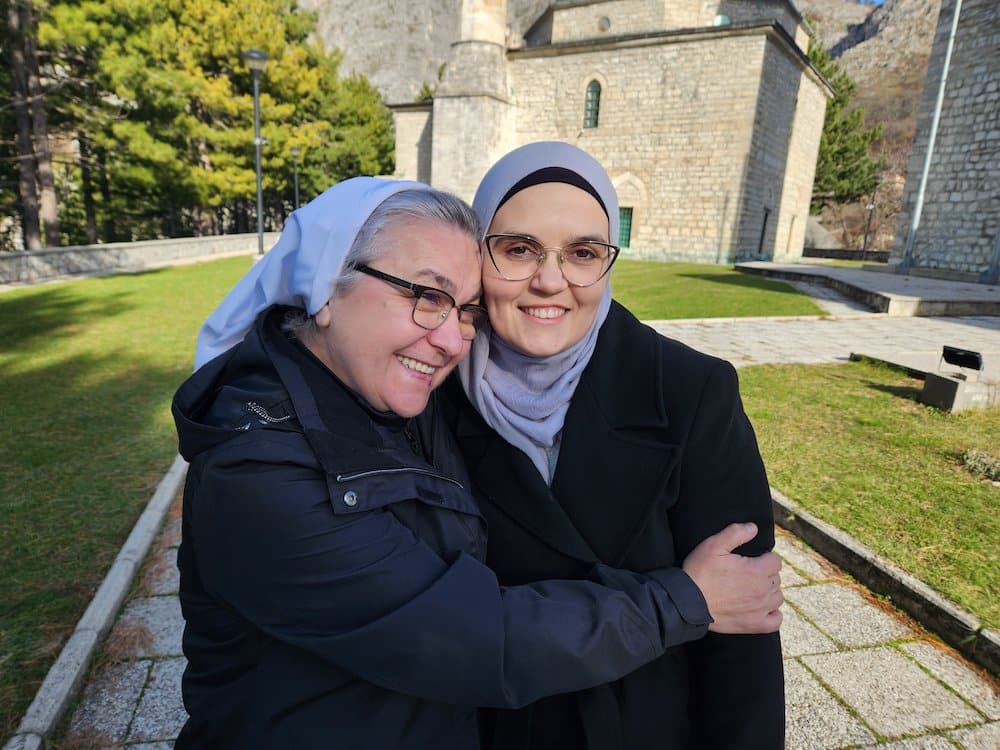
In the wake of what she calls “a complicated history,” it has been important, Sister Iva said in an interview with Global Sisters Report in her congregational convent, for all peoples to come together — whether that means visiting each other’s place of worship, which Sister Iva does easily, or being involved in community and social events for everyone.
“We are living this dialogue here,” she said.
Interfaith cooperation
Sister Iva’s congregational house, adjoining one of the city’s Catholic churches, “is open to all religions and nationalities,” she said. It also is the site for gatherings of people of all faiths — such as social events, poetry readings, prayer meetings or sessions of a local council for interreligious dialogue, for which Sister Iva serves as president.
All of these gatherings are of interest to the public, said Sister Iva, noting that Jajce residents “express the need for such meetings.”
Also important: public discussions and presentations of Pope Francis’ 2015 environmental encyclical “Laudato Si’, on Care for Our Common Home.”
Climate-related education has become part of Sister Iva’s ministry, something she says comes naturally to a member of a Franciscan congregation but also stems from the global nature of the world’s current climate crisis.
Still, Sister Iva acknowledges that interfaith cooperation is an abiding passion for a number of factors — a basic one being that Jajce is a community with a mixed religious population. And that being in dialogue with neighbors is a Christian mandate, she said. “The church calls us to be in dialogue with everyone.”
But in the small village where Sister Iva grew up — Gornji Bešpelj, not far from Jajce — “Catholics and Muslims weren’t strangers to each other,” she recalled. “We had good communication then.”
Given that background, when Sister Iva arrived in Jajce for ministry in 2009, “I felt there was something for me to work on,” she said. “I felt interreligious dialogue is the mission (through which) I should live my Christian call and Franciscan charism.”
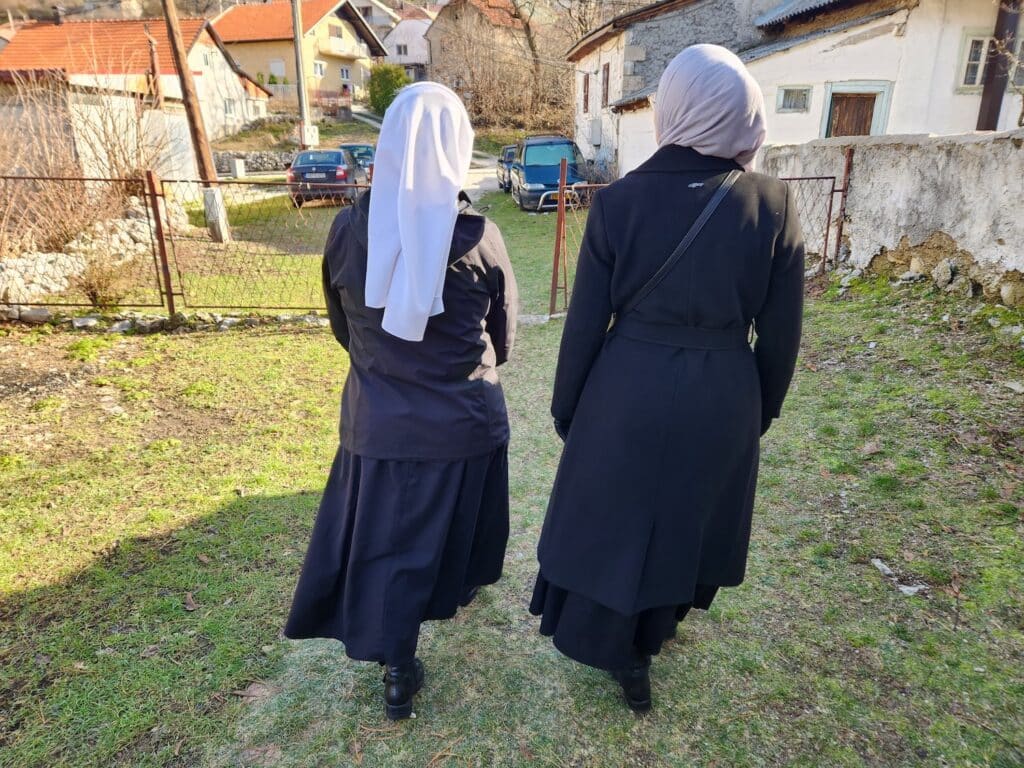
St. Francis and the sultan
She was particularly inspired by the story of the 1219 encounter of St. Francis of Assisi with the sultan of Egypt in a peacemaking effort during the Crusades.
Something similar animates the ministry of Sister Blanka Jelicic, 55, a Croatian-Slavonian music teacher and member of the Sisters of Mercy of St. Vincent de Paul. Her ministry included a year, 1994-95, during the height of the siege of Sarajevo.
She recalls a shared sense of suffering and solidarity across ethnic and religious lines.
“We were sheltered in a basement, Serbs, Muslims and Croats all,” Sister Blanka said, recalling the siege. “We shared things.”
The dangers were real. “Every day you were under pressure,” she said. “It was a miracle when you weren’t killed.”
She said a kitten saved her life.
Out in a public space, she bowed down to the animal, telling it to “go away, go away.” As she did that, a sniper’s bullet passed over her head.
“It was an experience,” she recalled. “Every day you were alive in Sarajevo was like a gift you received. It was like winning the lottery — you had another day.”
Seeing ‘God’s creation in each person’
Now Sister Blanka ministers in the city of Livno, home to about 32,000 residents — predominately Croatian with a small Muslim minority. The hilly city of brooks and streams, bridges and venerated mosques and churches is about 70 miles southwest of Jajce, reachable by car through snow-covered plains, plateaus and mountains — and the occasional sighting of a shelled-out house, a tangible and physical reminder of the war of the 1990s.
Formerly the provincial superior for her congregation, Sister Blanka has now returned to teaching church music for Catholic youths and families at a Livno parish. But assisting with interfaith dialogue and cooperation is an animating passion, given her experience in the war and living and working among people of all faiths.
Sister Blanka was asked last year by a priest to serve on an informal city interfaith council of about 27 members, a position she gladly took up.
“It’s not strange to me,” Sister Blanka said in an interview in a stylish coffee shop in the center of the picturesque city. “It’s natural for me. I see God’s creation in each person. If someone needs help, I will help them. It doesn’t matter what faith tradition a person belongs to.”
The council meets regularly to foster dialogue but also conducts joint projects, such as actions to raise awareness about violence against women and children. “It’s important to send a message about that,” she said, calling it a serious problem in the country.
She was chosen for the role partly because of her visibility in raising money for small-scale projects to help those needing assistance, like a Muslim resident whose family needed a washing machine.
The successful fundraiser for that project united Sister Blanka with an important ally — a teacher who works in a Muslim school and is the mother of an 8-year-old daughter. Šejla Mujic Kevric, 35, praises her Catholic sister colleague for her outgoing optimism and enthusiasm, calling Sister Blanka “a member of my family now.”
Over the past six years, the two womens’ work has focused on youth and women, two groups that are open to a spirit of cooperation between those of different faiths, which in Livno includes not only the Catholic majority but the Muslim minority and an even smaller group of Orthodox Serbs.
‘Christ’s love’ the only certainty
While pleased with progress they’ve made, both women don’t want to paint a portrait of a society fully healed from the wars of three decades ago.
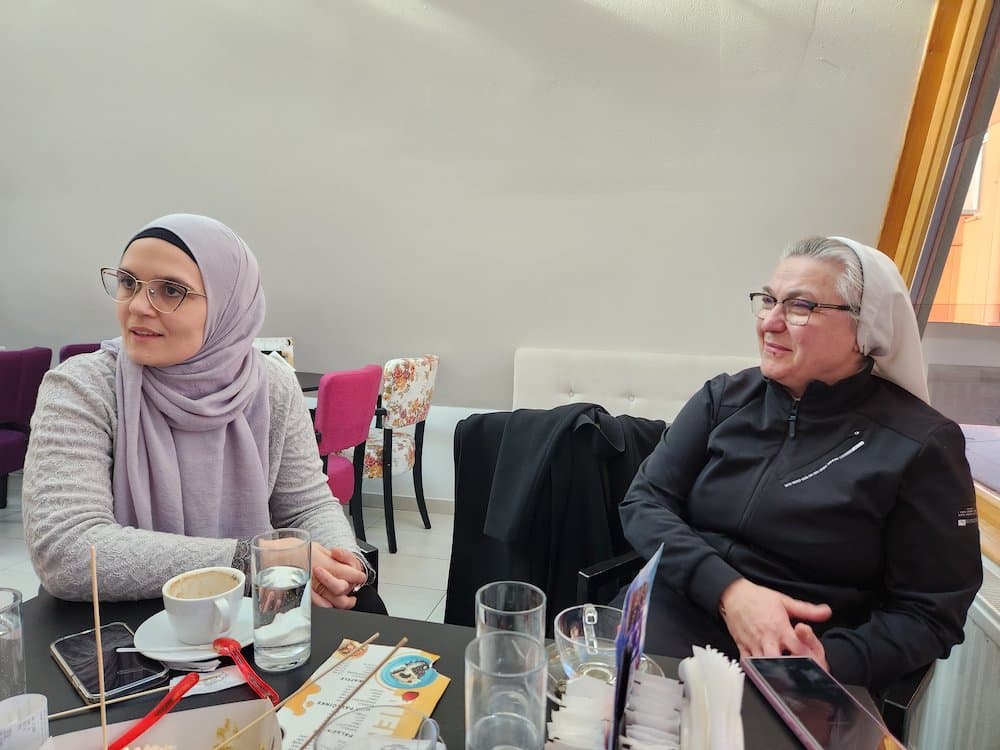
“There are still some suspicions,” Kevric said of relations between people. “It’s not a utopia. There are sometimes tensions though they’re often not visible. But we’re here to break those tensions.”
Residents in Jajce express similar sentiments, saying that not all divisions have healed, and that tensions can be exploited for political purposes by political figures. In that regard, the shadows of war are perhaps not fully behind Bosnians.
Sister Blanka noted that her work with her Muslim friend, particularly in helping the poor in Livno, “fits completely” with her congregation’s charism.
“Christ said to take care of your closest like you care of yourself because the hearts are broken, the bodies are injured, the souls are hurt,” Sister Blanka said. “As a Catholic and as a sister, the only thing that is certain (to me) is Christ’s love.”
Asked if females make better peacemakers than men, both women smiled and Sister Blanka winked at her friend. “Yes,” Kevric said, but with both adding that, in their Bosnian experience, women are often better acquainted with the immediate needs of their families and neighbors.
Certainly no one doubts the commitment of Catholic sisters as peacemakers.
“Our source, the Bible, and our Franciscan charism should inspire us to be open to difference, to be there for everyone, to be a sister to everyone and to all of God’s creatures, as St. Francis teaches us,” Sister Iva said.
“I tell everyone: ‘Don’t be afraid of the other. Look at how God created us, as all different. It shows how large his creation is. That’s a beautiful thing.'”
Chris Herlinger is an international correspondent for Global Sisters Report, a project of National Catholic Reporter.

